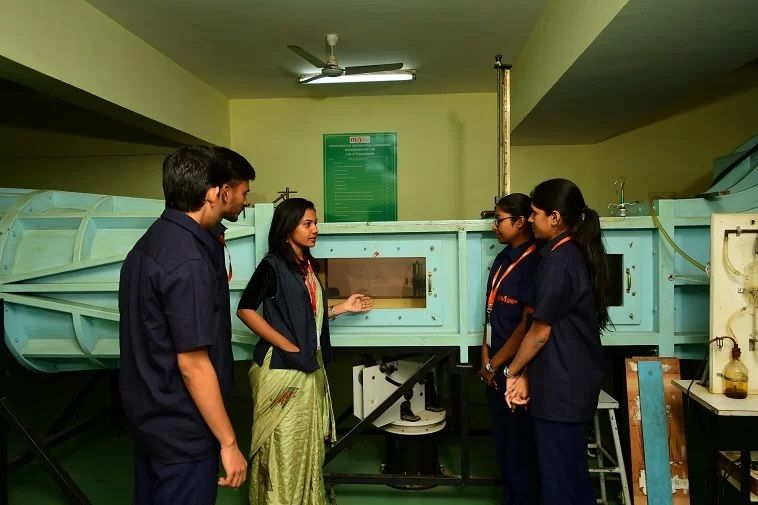Brief write up about the course structure of M.Tech Aeronautical Engineering
The Curriculum of the Masters in Aeronautical Engineering has been framed, based on NEP guidelines, with a strong focus on Multidisciplinary education. All the recommendations of NEP have been carefully considered while framing the syllabus which has been approved by the Board of Studies, with inputs from experts in Industry and Academia. The latest trends and technologies of the Aeronautical Industries have been given due weightage in the Curriculum, so that our students are up-to-date with these developments.
The new syllabus for the 2022 scheme has basic science courses, professional core courses, integrated professional core courses and professional electives, with a credit structure of 80 credit points.
Professional Core courses, namely, Aerodynamics, Introduction to Aerospace Vehicles and Systems, Finite Element Methods, Flight Mechanics, Aircraft Flight Dynamics and Automatic Flight Control have been included in the scheme.
Professional Elective courses, namely, Applied Computational Fluid Dynamics, Fatigue and Fracture Mechanics, Aero Engine Testing and Evaluation, Avionics, Unmanned Aerial Vehicles, Hypersonic Aerodynamics, Theory of Elasticity, Theory of Combustion, Artificial Intelligence and Robotics, Helicopter Dynamics, Flight Vehicle Design, Composite Material and Fabrication Techniques, Rocket and Missiles, Flight Testing, Space Mechanics, along with a set of Open Elective subjects like Aircraft Transportation Systems, Aircraft Systems and Instrumentation, are also a part of the Curriculum.
Various Integrated Professional Core courses like Aerospace Propulsion with propulsion laboratory, Airframe structures and Structural Design with the modelling and analysis lab, have been introduced to enable students to get exposure to both the theoretical and practical aspects of Aeronautics. Mandatory credit courses on Research Methodology and IPR have also been included in the scheme, as these are very crucial for a Management graduate.
Students need to complete Online Audit courses for the award of their Masters degree. The syllabus includes contents for Experiential Learning Components, NPTEL Video Links and Practical Applications of the course content. The Curriculum has been designed in line with the AICTE requirements, listing out Course Objectives and Course Outcomes mapped with Program Outcomes.
The Curriculum aligns with the vision of NEP, keeping in mind the research challenges of Aeronautical Engineers. It will enable our students to compete successfully in the global environment. NEP 2020 envisages quality education to all youngsters, with the main aim of grooming good, thoughtful, well-rounded and creative individuals. NEP also advocates developing character, ethical values, constitutional values, intellectual curiosity, scientific temper and creativity in the younger generation. The Curriculum of our Masters in Aeronautical Engineering is a firm step in that direction.
